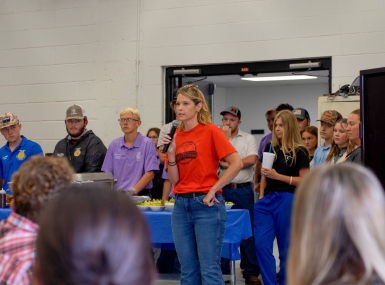SBA reconvenes the Council on Underserved Communities advisory board, seeks nominations
Author
Upcoming Events
Related News

Key Takeaways
On June 22, the Small Business Administration (SBA) announced it is reconvening the Council on Underserved Communities (CUC) to help prioritize equity across the administration’s programs and initiatives. The Council will advise SBA on improving its strategies to help underserved communities, focusing on communities that have traditionally faced barriers in accessing credit, capital and other resources critical to small businesses. It will make recommendations to SBA on ways to improve and strengthen equity among women-, veteran- and minority-owned businesses as well as those from low-to-moderate income or rural communities.
Alongside this announcement, SBA issued a solicitation for nominations of eligible stakeholders to serve on the Council. The CUC will be made up of 20 diverse stakeholders representing the interests of urban or rural underserved communities who represent one of the following constituencies:
- Current or former small business owners
- Community leaders
- Small business trade associations
- Academic institutions
To apply for a position on the Council, interested individuals should submit a letter of self-nomination or a letter of nomination from a peer, professional organization, society or member of Congress; the Nominee Information Form; and a resume to either Kendall Corley at Kendall.Corley@sba.gov or to underservedcouncil@sba.gov. Nominations may also be mailed to the Office of the Administrator, U.S. Small Business Administration, 409 3rd St. SW, Washington, DC 30416. Applications are due by July 20, 2021.
Nominations will be accepted on a rolling basis until all vacancies are filled. Council members will serve for a term of two years and may be reappointed for no more than three terms.
NACo strongly encourages qualified county officials to apply for a position on the Council on Underserved Communities. CUC members will provide an essential connection between SBA and small businesses in underserved communities, and county governments have a unique and critical perspective to share on community and economic development at the local level.
Webinar
Understanding Eligible Uses of the Fiscal Recovery Fund: Supporting Underserved Communities
As counties determine how to invest their ARP State and Local Fiscal Recovery Funds to respond to the coronavirus pandemic, NACo is hosting a series of information sessions digging into the various eligible uses outlined in Treasury’s Interim Final Rule (IFR) for the program. This session will focus on how counties can use their allocations to address the pandemic’s negative economic impact on children, families and individuals in underserved communities. NACo members will also have the opportunity to ask questions and provide feedback on Treasury’s IFR.

Related News

National Association of Counties Reinforces Intergovernmental Partnership in Response to State of the Union Address
The National Association of Counties (NACo) responded to President Trump’s State of the Union address with a statement from Executive Director Matthew Chase.

Inland port offers opportunity for Hertford County, N.C.
Hertford County, N.C. doesn’t have a lighthouse, but that hasn’t stopped its economic future from shining thanks to what became known as Project Green Lantern.

Chamber of commerce program helps keep workers on the job
Audrain County, Mo.'s Workforce Resource Assistance Program has helped employers keep staff in place, reducing turnover and promoting stability.
